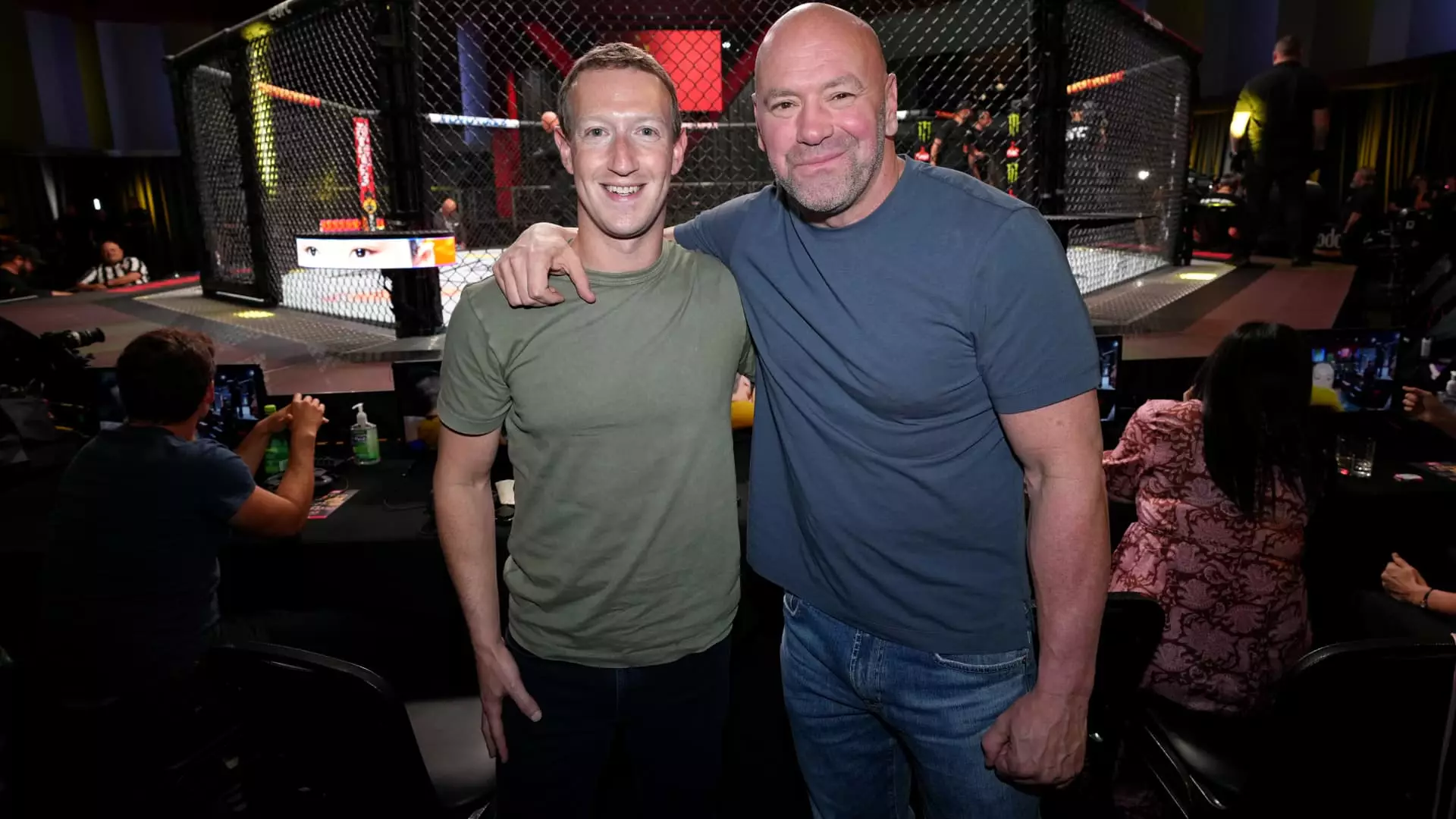In a landscape where sports, technology, and politics increasingly intertwine, the announcement of Dana White’s appointment to Meta’s board just before the new Trump administration began is nothing short of provocative. This bold maneuver raises questions about the implications of such appointments in influence-driven sectors and the role of personal connections in professional environments.
Dana White, known widely as the force behind the burgeoning success of the Ultimate Fighting Championship (UFC), joins the board of Meta amid a politically charged atmosphere. This decision indicates not merely a shift in corporate strategy but also a reflection of personal alliances that transcend traditional business paths. White’s longstanding friendship with Donald Trump speaks volumes about the interconnectivity of elite networks in America today. His arrival can be interpreted as a power play, one that could influence Meta’s approaches to everything from content moderation to branding, especially given its recent history of turbulence related to misinformation and public sentiment.
Mark Zuckerberg’s description of White as a visionary entrepreneur is a testament to the admiration shared within the corporate ecosystem. However, it also highlights a potential conflict for Zuckerberg, who once found himself at odds with the former president. This duality emphasizes the complexities inherent in navigating leadership positions while balancing personal affiliations against the backdrop of corporate responsibility.
Interestingly, Zuckerberg’s personal interest in MMA adds another layer to this narrative. His forays into mixed martial arts training and attendance at UFC events suggest a cultural convergence that could be leveraged for Meta’s benefit. As Zuckerberg recovers from his ACL injury sustained during training, there’s an intriguing parallel between physical resilience in sports and resilience in leadership—a theme that White epitomizes through his unyielding commitment to the UFC’s growth.
Furthermore, the rivalry between Zuckerberg and Elon Musk, marked by suggestions of a celebrity match brokered by White, underscores the blurring of lines between entertainment, sports, and corporate rivalry. This interplay reflects a broader cultural phenomenon where sports become not only a battleground for athletes but also a stage where tech moguls play out their competitive instincts.
However, White’s appointment is not devoid of controversy. His previous entanglement in a public incident involving domestic violence, captured on video earlier, casts a long shadow. While White publicly apologized and his wife characterized the event as isolated, the implications for Meta, which is under continuous scrutiny for its societal impact, cannot be understated. The juxtaposition of White’s professional accolades against such personal missteps urges consideration of how past behaviors might affect perceptions and stakeholder trust moving forward.
Moreover, Zuckerberg’s aligning Meta with Trump through donations and personal meetings raises ethical questions about the tech giant’s position in the political arena. The decision to integrate members who may have complicated histories or connections can provoke debate about the integrity of corporate governance and the motives behind them.
In light of White’s appointment, it’s also crucial to analyze the broader context of Meta’s board composition. Alongside new members like John Elkann and Charlie Songhurst, the board represents a diverse array of industries and expertise. This complexity hints at strategic directions aimed at harnessing significant advances in areas such as artificial intelligence and wearables, suggesting that Meta is intent on not just surviving but thriving in an era of rapid technological evolution.
Yet, while alternate perspectives can be valuable, the delegation of responsibility to board members with ties to heavyweight political figures or controversial business leaders invites criticism regarding Meta’s perceived autonomy and social responsibility. As Zuckerberg himself stated, the board’s composition is about leveraging opportunities, but with great power comes the necessity for ethical stewardship.
The intersection of sports, technology, and politics through Dana White’s appointment to Meta’s board weaves a complex narrative filled with opportunities and challenges. As companies navigate these waters, they must tread carefully, balancing personal connections with professional integrity. The potential ramifications of these decisions ripple outward, influencing public perception and requesting a reevaluation of accountability within corporate structures. As this captivating saga unfolds, one can only hope that innovation will not overshadow ethical imperatives, fostering a corporate ethos that aims for progress while safeguarding societal values.


Leave a Reply